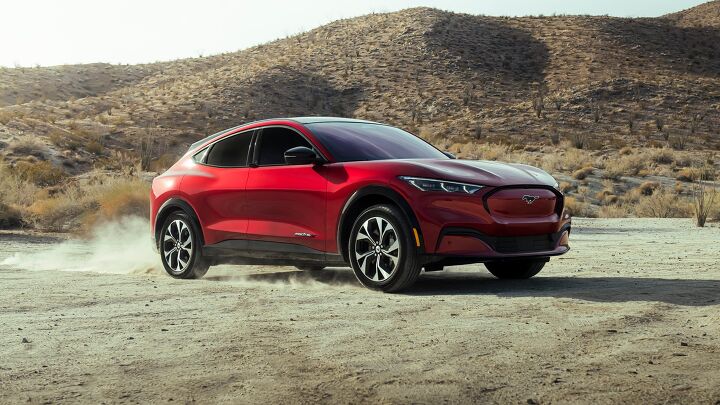
Disappointing EV demand can be blamed on several factors, ranging from the toxic political situation in the U.S. to concerns about driving range and charging. One factor that is coming into clear focus is pricing, as Ford recently found out with the Mustang Mach-E. In response to flagging demand, the automaker cut prices on the electric SUV and has seen an uptick in sales as a result, showing that cost remains a significant hurdle for many prospective buyers.
Ford knocked several thousand dollars off the Mach-E’s price earlier this year and has offered aggressive financing deals with interest rates as low as zero percent. Analysts told Automotive News that Ford has seen Mach-E sales triple since the changes, bringing its significant dealer inventory down by nine percent.
Now that we’re past the wave of enthusiastic early adopters, price is a growing concern for buyers. Mainstream car shoppers aren’t as willing to shell out a significant premium for an EV when comparable gas, hybrid, and PHEV models are less expensive. EV cost will remain a hurdle until automakers can crack the profitability nut that has so far eluded all of them.
Ford aims to address the problem with its internal skunkworks team’s project to develop a more affordable EV, but there’s no word on when the effort will deliver a new vehicle. Tesla may reach the destination first, but it faces significant manufacturing challenges to bring the price down to the promised $25,000 range. That said, automakers lose an average of $6,000 on every new EV sold at higher price points, so it remains to be seen how sustainable more affordable models will be, even if demand and volume reach record highs.
[Image: Ford]
Become a TTAC insider. Get the latest news, features, TTAC takes, and everything else that gets to the truth about cars first by subscribing to our newsletter.

